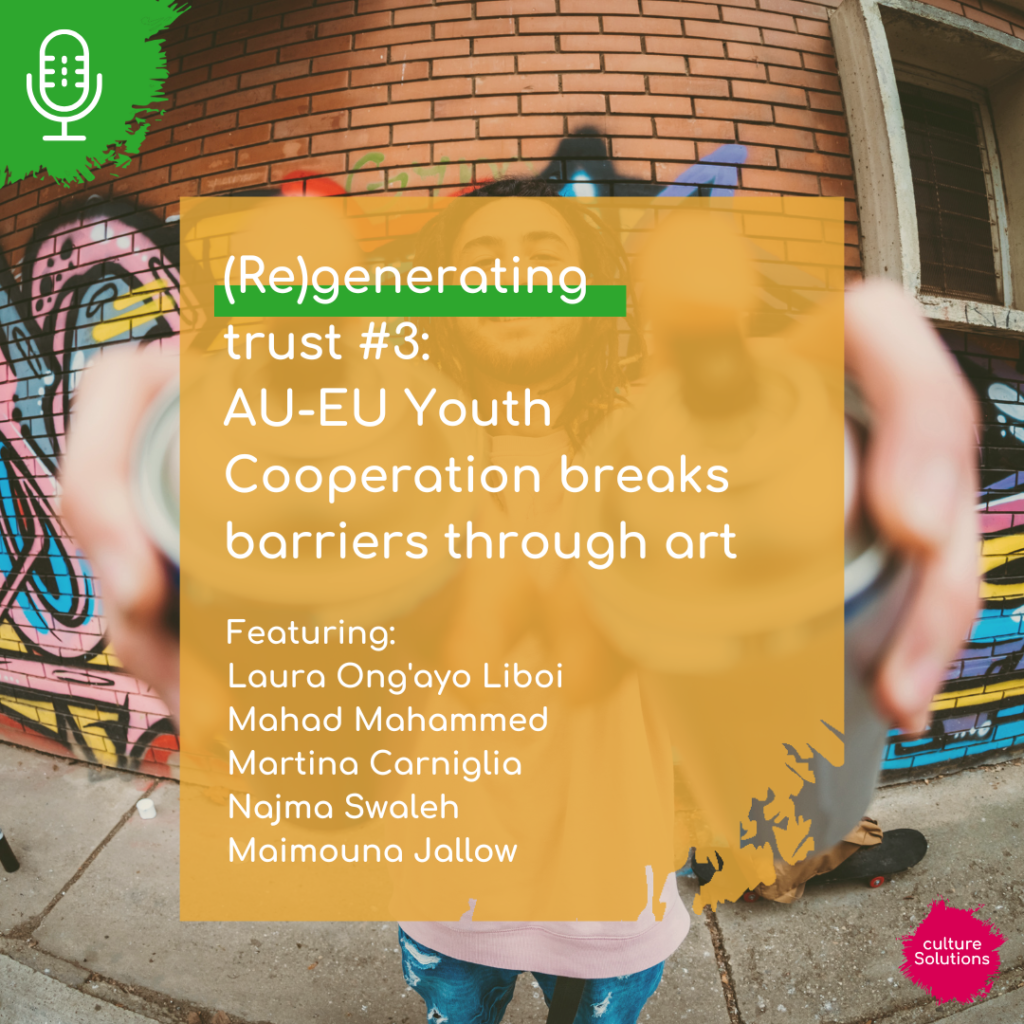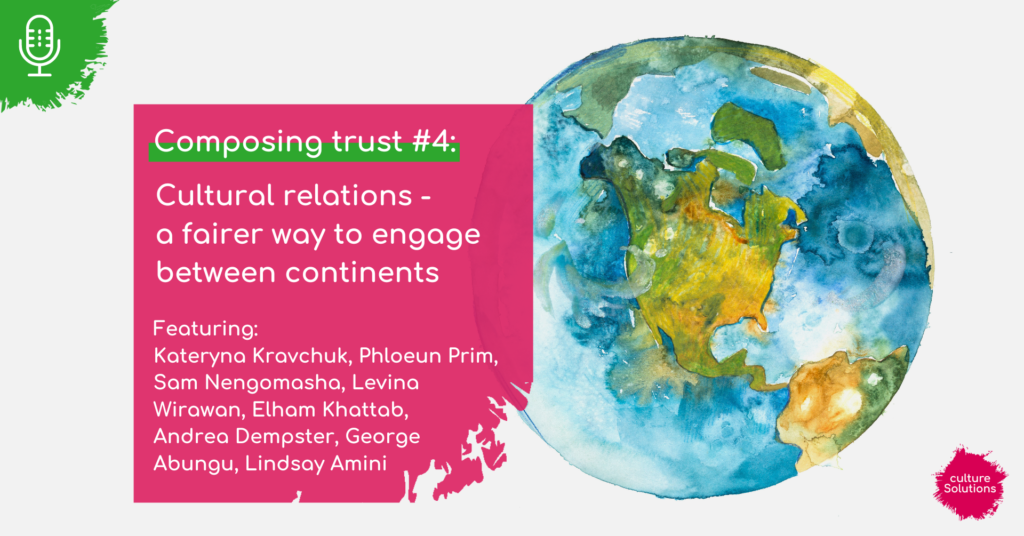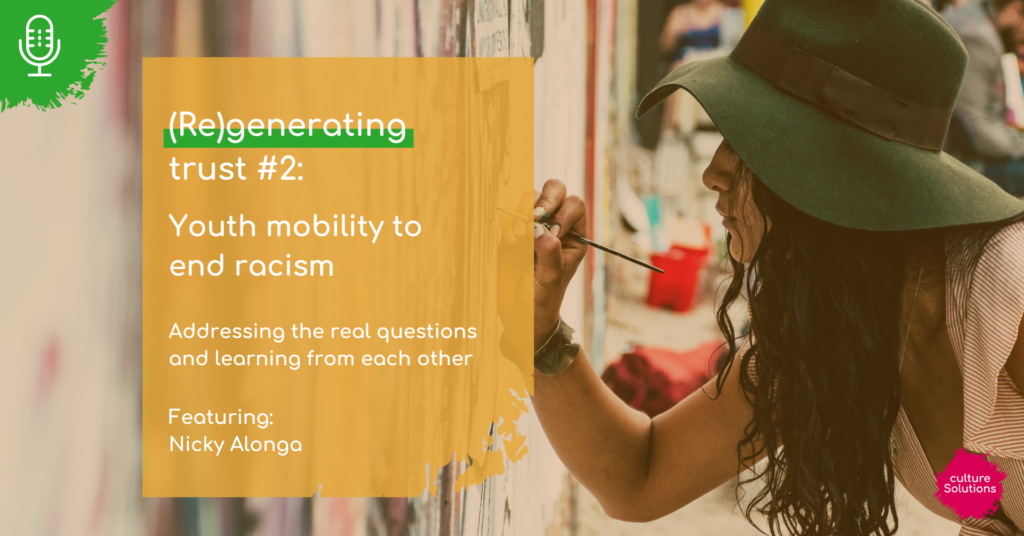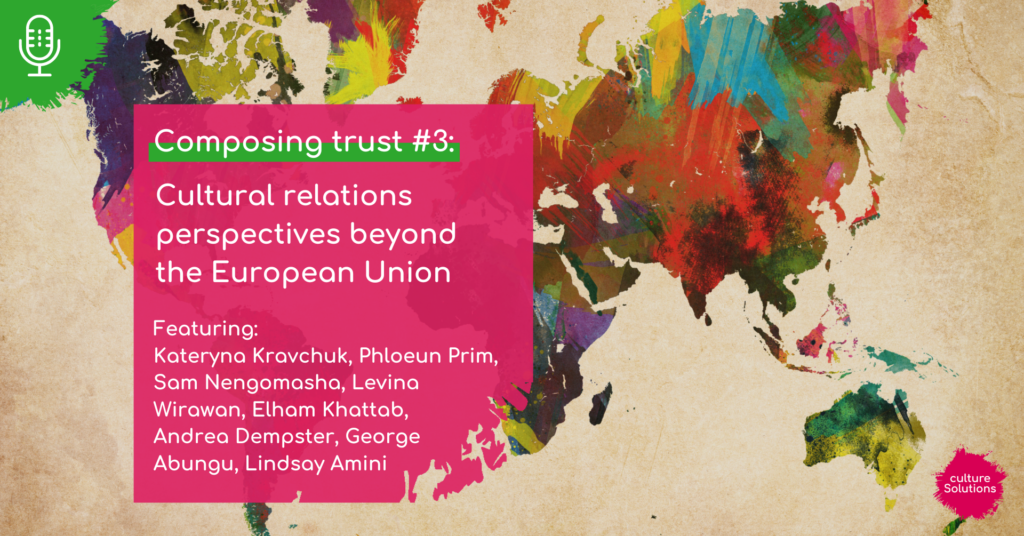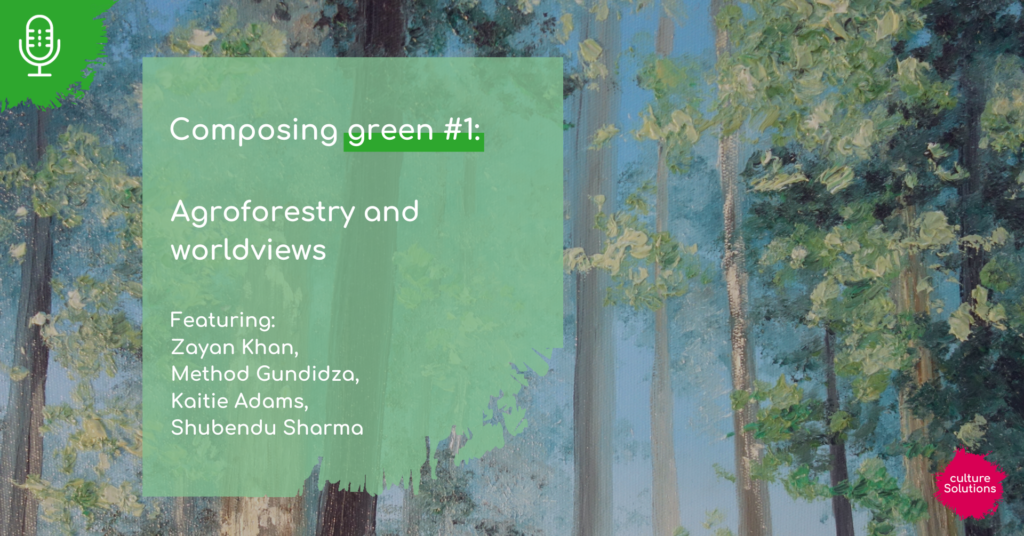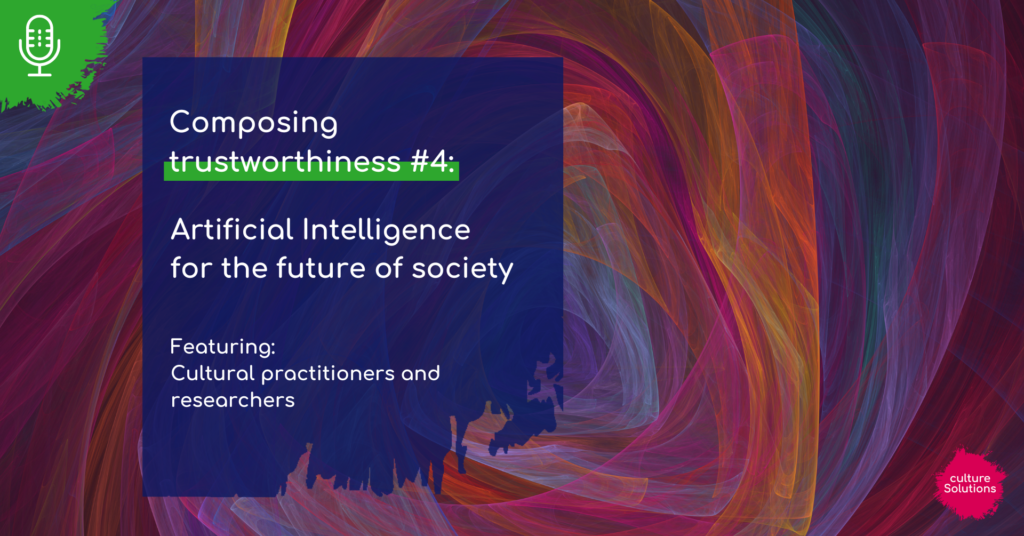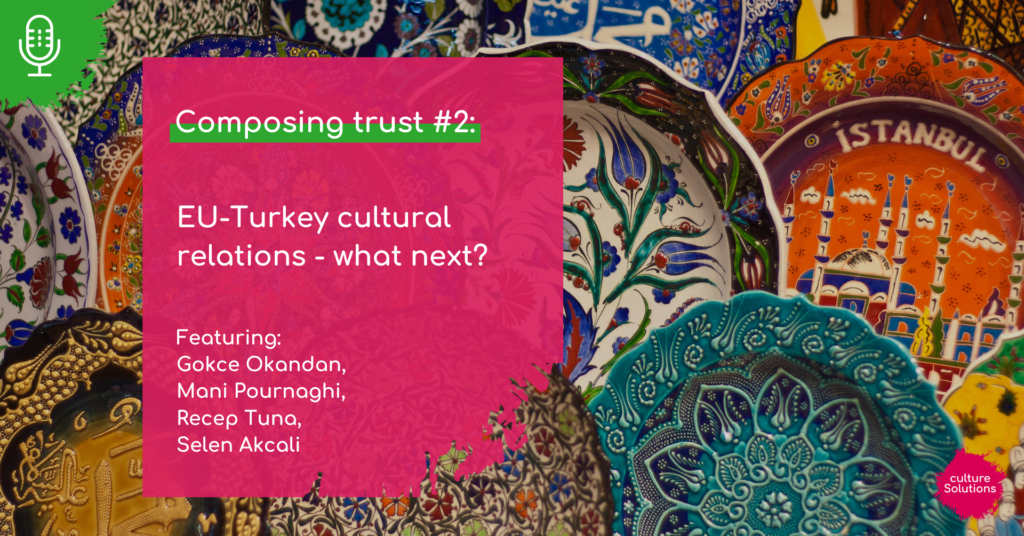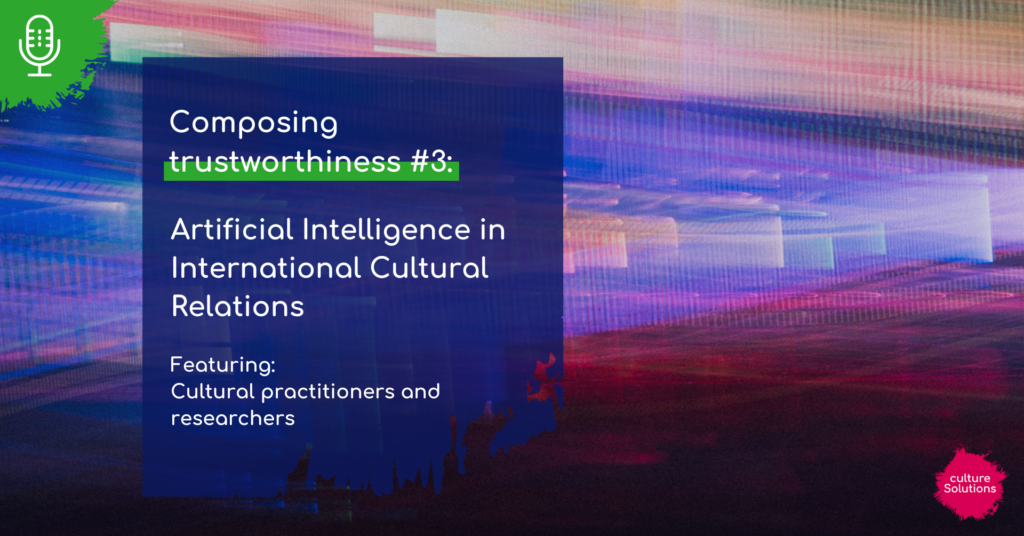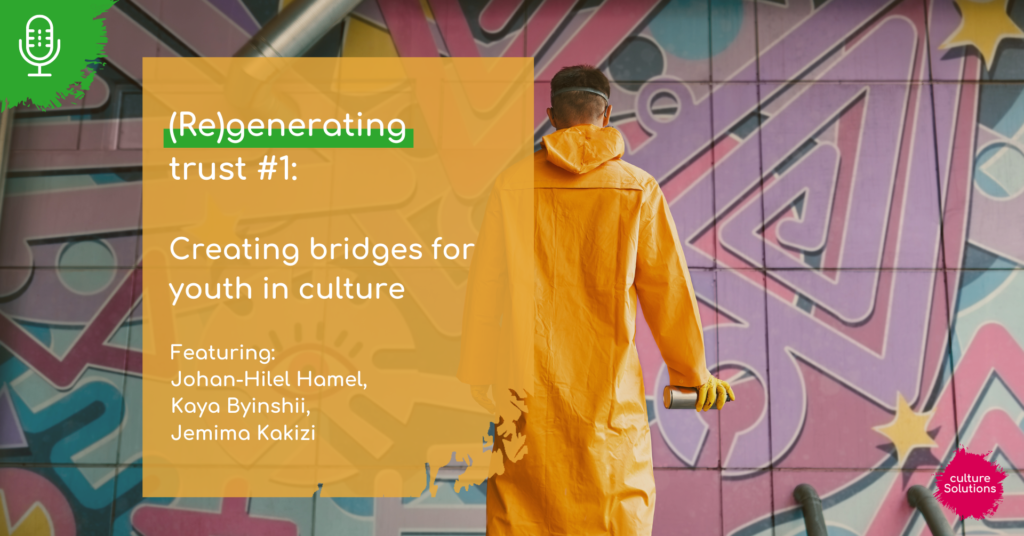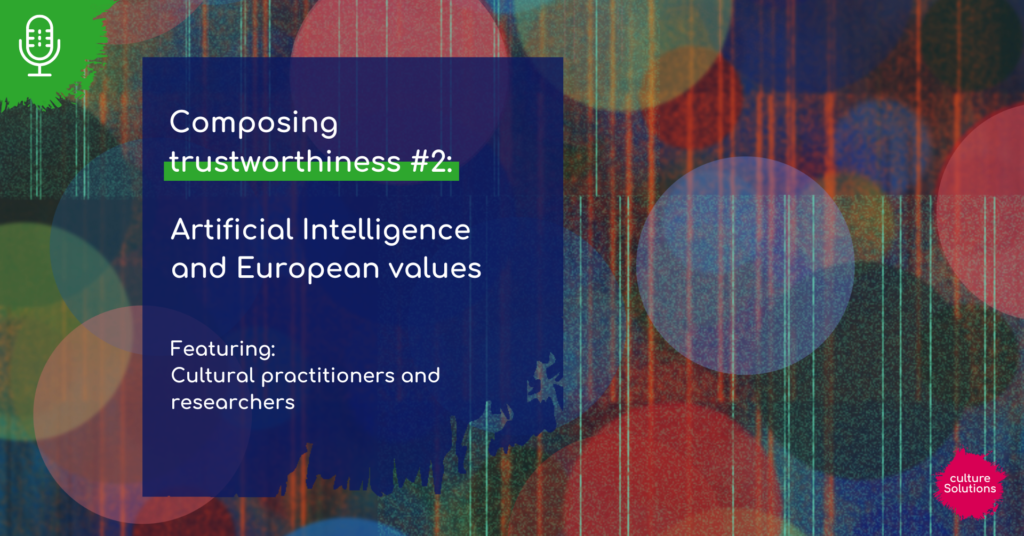Category / Podcast
-
(Re)generating trust #3: AU-EU Youth Cooperation breaks barriers through art
In this third episode of the miniseries (Re)generating trust, focusing on youth and culture, we hear the powerful views of four artists from Kenya, Somalia and Italy, that took part in the ArtXChange project of the AU-EU youth cooperation hub, and one of the co-creative Directors of the programme.
25 October 2024 -
Composing trust #4: Cultural relations – a fairer way to engage between continents
What is the relationship between diverse world regions and the dynamics that have emerged in recent years between and within the North and the South, the East and the West? We round up the podcast episode with a series of recommendations based on contributors’ professional practices, linked to cherishing and preserving local cultural expressions, promoting intercultural exchanges and mainstreaming cultural policies.
26 May 2024 -
(Re)generating trust #2: Youth mobility to end racism
This second episode of the miniseries (Re)generating trust, focusing on youth and culture, features Nicky Alonga, a trailblazer in the fields of art and education in Rwanda. Nicky is a visionary entrepreneur in the creative sector who established a publishing house in Rwanda – Imagine We Rwanda – specialising in children’s books with narratives from Rwanda and Africa.
24 April 2024 -
Composing trust #3: Cultural relations perspectives beyond the European Union
It is time to ask ourselves: is ICR a purely Western concept? Does it have the same meaning in non-Western European contexts? This podcast episode gives voice to experts in various geographical settings with biew of contributing to the recognition of the myriad of understandings, reasonings, and realities that coexist within the realm of International Cultural Relations.
14 April 2024 -
Composing green #1: Agroforestry and worldviews
Agroforestry is a set of cultural traditions, practices and know-how that mix trees and agriculture. It has been practiced for thousands of years but has been almost forgotten by industrialised societies. Yet, agroforestry has a very significant role to play in climate action, Green Deal-related objectives, biodiversity loss, etc.
13 October 2023 -
Composing trustworthiness #4: Artificial Intelligence for the future of society
The fourth episode of the miniseries entitled Composing trustworthiness, takes a look forward, pondering on good practices, existing needs and visions for the future. A future where Artificial Intelligence is part and parcel of society and international cultural relations.
29 August 2023 -
Composing trust #2: EU-Turkey cultural relations – what next?
This podcast focuses on the bilateral relations between the EU and Turkey. Although in the last twenty years relations have become more tense and complicated, this has not prevented cultural professionals from continuing their cooperation work. Thus, the episode provides a rich set of lessons learnt and good practice in cultural projects management.
12 July 2023 -
Composing trustworthiness #3: Artificial Intelligence in International Cultural Relations
In the third episode of the miniseries entitled Composing trustworthiness, we dive deep into our core topic: the impact of Artificial Intelligence on International Cultural Relations, and the way this disruptive technology drives or impedes relations with partners around the globe.
11 May 2023 -
(Re)generating trust #1: Creating bridges for youth in culture
In this first episode of the miniseries (Re)generating trust, that tackles the not-so-obvious link between youth and culture, we hear inspirational examples of artistic and cultural collaboration between Europe and Rwanda and learn how European cultural centres can act as bridges.
12 April 2023 -
Composing trustworthiness #2: Artificial Intelligence and European values
In this second episode of the miniseries entitled Composing trustworthiness, we ask our experts from different cultural and diplomatic fields: How are European values reflected in its regulatory approach? Is this approach to AI compatible with other cultures and does it sufficiently consider the cultural and creative sector?
22 March 2023
Categories
Tags
Recent Posts
- Forum on the Future of the Mediterranean – youth and women for intercultural dialogue, education and employment
- Changemakers – EU commited to defending democracy and culture worldwide
- Deconfining Coffee Chat: Africa-Europe cultural relations
- Sustainable digital creative ecosystems in Africa-Europe relations: the role of universities
- culture Solutions’ year in review
Archives
- April 2025
- March 2025
- January 2025
- December 2024
- November 2024
- October 2024
- August 2024
- May 2024
- April 2024
- December 2023
- November 2023
- October 2023
- September 2023
- August 2023
- July 2023
- May 2023
- April 2023
- March 2023
- January 2023
- December 2022
- November 2022
- September 2022
- July 2022
- June 2022
- May 2022
- February 2022
- January 2022
- December 2021
- November 2021
- July 2021
- June 2021
- May 2021
- March 2021
- February 2021
- December 2020
- November 2020
- October 2020
- September 2020
- April 2020
- September 2019
- July 2019
- June 2019
- May 2019
- April 2019
